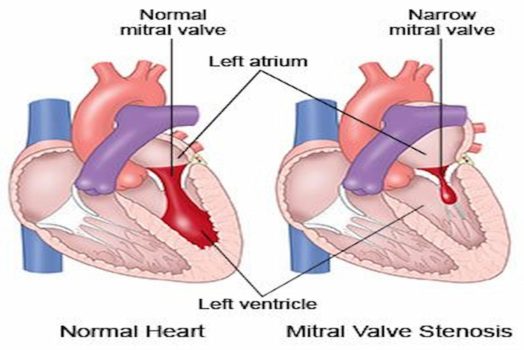In recent years, music therapy in care homes has gained significant attention for its numerous benefits in enhancing the quality of life for elderly residents. At Redhill Care Home, this therapeutic approach has been integrated into the daily routine, offering residents a joyful and enriching experience. This blog post explores the profound impact of music therapy on the well-being of care home residents, highlighting its various benefits and the positive changes it brings to their lives.
The Power of Music Therapy
Emotional and Psychological Benefits
Music uniquely evokes emotions and memories, making it a powerful tool for emotional and psychological well-being. For residents of Redhill Care Home, music therapy sessions provide an opportunity to express emotions, reduce anxiety, and alleviate depression. The familiar tunes and rhythms can trigger memories and emotions, creating a sense of comfort and familiarity. Music therapists in this care home carefully select songs that resonate with the residents, fostering a positive and uplifting atmosphere.
Music therapy also helps improve mood and reduce feelings of loneliness. Group sessions encourage social interaction, assisting residents to connect and share their experiences. The shared enjoyment of music creates a sense of community and belonging, which is particularly beneficial for those who may feel isolated or disconnected.
Cognitive Benefits
Engaging in music therapy can also significantly impact cognitive functions. For residents in this care home, participating in music therapy activities such as singing, playing instruments, and listening to music can stimulate cognitive processes. These activities can enhance memory, attention, and problem-solving skills. Research has shown that music can activate various brain areas, promoting neural connections and potentially slowing cognitive decline.
Music therapy sessions often include activities designed to challenge the brain, such as remembering lyrics, following rhythms, and coordinating movements. These cognitive exercises are enjoyable and help maintain and improve mental acuity. For residents with dementia or Alzheimer’s disease, music therapy can serve as a therapeutic intervention to manage symptoms and improve overall cognitive function.
Physical Benefits
The physical benefits of music therapy are equally noteworthy. Residents in this care home participate in music therapy sessions involving movement and exercise. Whether dancing to a favourite song or engaging in rhythmic exercises, these activities promote physical health and mobility. Music therapy encourages residents to move in ways that may not be possible in other settings, enhancing coordination, balance, and overall physical fitness.
Furthermore, physical engagement in music therapy can help manage pain and discomfort. Music’s rhythmic and repetitive nature can distract from pain, reducing the perception of discomfort and promoting relaxation. It is particularly beneficial for residents with chronic pain conditions, providing them with a non-pharmacological method of pain management.
Social Benefits
One of the most significant advantages of music therapy is its ability to foster social connections. Music therapy sessions for residents in this care home are a social event where they can interact with peers, share memories, and create new friendships. The collaborative nature of making music together promotes teamwork and communication, enhancing social skills and reducing feelings of isolation.
Group music therapy sessions create a sense of camaraderie and mutual support. Music therapy is frequently perceived as an accessible and enjoyable method of establishing connections with others by residents who may be reticent to participate in other social activities. This social interaction is crucial for mental and emotional well-being, contributing to a more vibrant and cohesive community within the care home.
Implementing Music Therapy at Redhill Care Home
Personalised Music Programs
Music therapy in this care home is tailored to meet each resident’s needs and preferences. Personalised music programs are developed based on the residents’ musical tastes, cultural backgrounds, and therapeutic goals. Music therapists work closely with residents and their families to create playlists that include songs from their past, fostering a sense of nostalgia and personal connection.
These personalised programs ensure that each resident receives a unique and meaningful experience. For some, this might involve listening to calming classical music to reduce anxiety; for others, it could mean engaging in lively sing-alongs to boost mood and energy levels. Music therapy’s flexibility and adaptability make it a versatile and effective tool for enhancing the well-being of residents in this care home.
Music Therapy for Dementia Care
Music therapy offers specialised benefits for residents with dementia or Alzheimer’s disease. At Redhill Care Home, music therapists are trained to use music as a therapeutic intervention to manage symptoms and improve the quality of life for these residents. Music therapy can help reduce agitation, improve mood, and enhance cognitive function in individuals with dementia.
One practical approach is using familiar and meaningful music from the residents’ past. This type of music can trigger memories and emotions, providing a sense of identity and continuity. Music therapy offers an alternative means of expression and connection for residents struggling with verbal communication. The non-verbal nature of music allows residents to communicate and engage in ways that may not be possible through words alone.
Conclusion
The advantages of music therapy for residents in care homes, especially within this facility, are significant and multifaceted. From emotional and psychological well-being to cognitive and physical health, music therapy offers a holistic approach to enhancing the quality of life for elderly residents. By fostering social connections and providing personalised and group therapeutic experiences, music therapy creates a nurturing and joyful environment that significantly improves the overall well-being of residents.
Integrating music therapy into daily routines in this care home has proven a valuable and effective means of promoting health, happiness, and a sense of community. As we continue to explore and understand the power of music, it is clear that music therapy will remain an essential and cherished part of care home life, bringing harmony and joy to residents’ lives.




